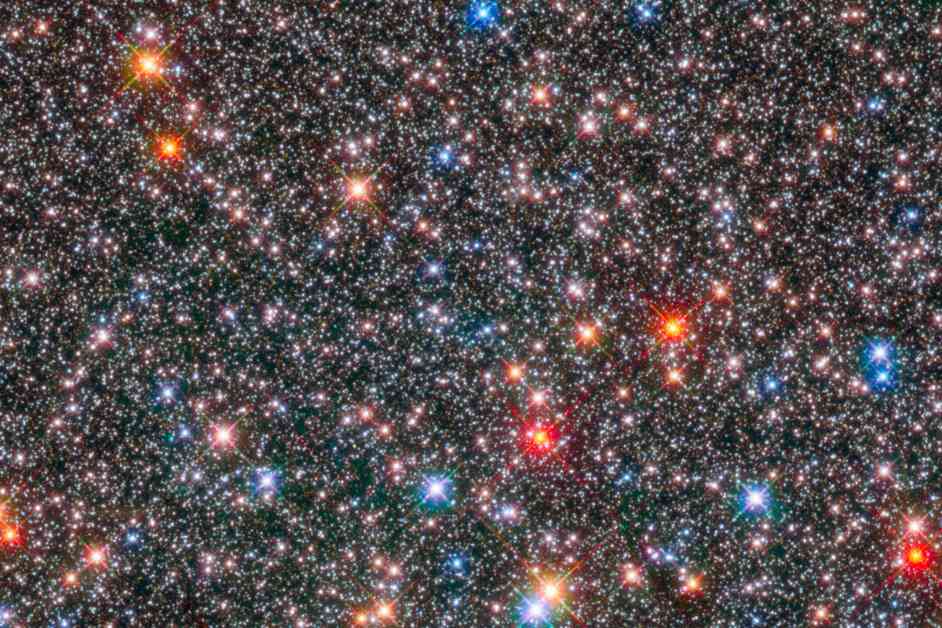Our solar system is just a tiny part of the vast Milky Way galaxy, orbiting at a speed of 230 kilometers per second. However, a recent study has revealed a planetary system within our galaxy that is moving at an astonishing speed of 541 kilometers per second, making it the fastest known planetary system to date.
Located about 25,000 light-years away from Earth and 1,000 light-years from the center of the Milky Way, this high-speed system consists of a red dwarf star and a gas giant planet with 29 times the mass of Earth. The discovery of this system was made possible after a microlensing event in 2011, which distorted the light of a background star as the system passed in front of it.
Further observations in 2021 confirmed the incredible velocity of this system, raising questions about how such planetary systems can survive at such high speeds. It is speculated that the star in this system may be a hypervelocity star, accelerated by interactions with other stars or even by the supermassive black hole at the center of our galaxy.
The existence of this fast-moving planetary system provides valuable insights into the formation and evolution of planets in the dense region of stars near the galactic bulge. While the known planet in this system is not in the habitable zone for liquid water to exist, it challenges our understanding of planetary systems and their ability to withstand extreme velocities.
This discovery opens up new avenues for research into the origin and development of planets around high-velocity stars. Scientists are intrigued by the implications of this finding and how it may shape our understanding of planetary systems in complex galactic environments.
The study of this fastest known planetary system in our galaxy sheds light on the mysteries of the universe and offers a glimpse into the diversity of celestial objects that exist beyond our own solar system. As we continue to explore the cosmos, discoveries like this remind us of the wonders and complexities of the universe we inhabit.




